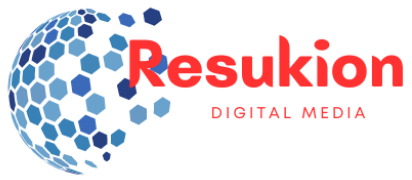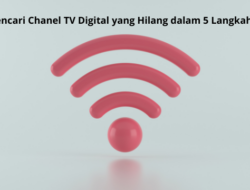The world we live in is constantly evolving, and the advancements in technology have created new opportunities in every industry. One of the most significant transformations in recent years is the rise of digital media, which has revolutionized the way we communicate, advertise, and consume information.
Resukion Digital media refers to any form of communication that uses electronic devices and the internet. This includes social media, search engines, websites, blogs, podcasts, videos, and many more. With the widespread use of smartphones, laptops, and tablets, people now have access to an immense amount of digital content that can be accessed from anywhere, at any time.
In the past, traditional media like newspapers, TV, and radio dominated the communication landscape. However, the internet has disrupted this model, and digital media has become the dominant force in modern communication. Today, businesses, organizations, and individuals are all using digital media to promote their brand, connect with their audience, and keep up with the latest trends.
One of the significant benefits of digital media is its ability to provide real-time communication. In the past, traditional media had to follow a set timeline, and information was broadcast on set schedules. However, with digital media, anyone can post, publish, and share information in real-time. This has transformed the way news is reported, breaking stories, and even how we communicate with each other.
Another significant advantage of digital media is its accessibility. The internet has expanded the reach of communication beyond national borders and geographic limits. Now, people can connect with others from around the world, share their experiences, and learn about new cultures and perspectives.
The rise of digital media has also resulted in a new level of democratization in communication. In the past, only those with access to traditional media equipment could broadcast their message to a large audience. However, digital media has made it possible for anyone with an internet connection to create content and share it with the world. This has opened up opportunities for small businesses, entrepreneurs, and individuals to communicate their message to a broader audience.
Digital media has also revolutionized the way businesses connect with their customers. Digital marketing strategies like search engine optimization, pay-per-click advertising, and social media marketing have become essential tools for businesses to reach their target audience. With the widespread use of social media, consumers have more power than ever before in shaping a company’s reputation and influencing its success.
Furthermore, digital media has transformed the entertainment industry. Online streaming services like Netflix, Amazon Prime, and Disney+ have made it possible for people to access high-quality entertainment content on demand. This has undermined the traditional model of cable TV, reducing the influence of network broadcasters and paving the way for new content creators.
However, the rise of digital media has also led to new challenges, such as fake news, misinformation, and the spread of hate speech. With the democratization of communication, it is easier for anyone to spread their message, regardless of the accuracy or legitimacy of their claims. This has resulted in a proliferation of online hate speech, extremist views, and conspiracy theories that threaten social cohesion and democratic values.
Moreover, social media platforms have been criticized for their role in spreading misinformation and amplifying extremist views. The algorithms these platforms use to display content to users can create echo chambers, where people are only exposed to content that reinforces their existing views. This reinforces existing biases and can lead to further polarization.
In conclusion, the rise of digital media has transformed the communication landscape, creating new opportunities for businesses, individuals, and organizations. It has democratized communication, expanded the reach of information, and provided real-time access to news and entertainment. However, these benefits are accompanied by new challenges, such as the spread of misinformation and hate speech. As digital media continues to evolve, it is up to individuals and society to use these new communication tools responsibly and ethically.




